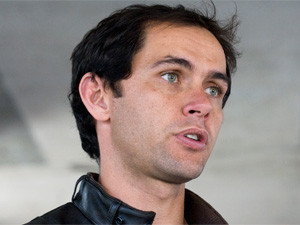
The Isizwe Project has unveiled a R6 million video-on-demand (VOD) offering in Tshwane, featuring local news recorded by citizen journalists and broadcast on the Tshwane Free WiFi network and zero-rated for users.
According to Isizwe project CEO Alan Knott-Craig Jr, the Connectup Tshwane on WiFi TV service is a bouquet of content produced by young people within Tshwane communities, "about and for the people of Tshwane".
The service currently offers four main channels, based around the areas of the Project Isizwe Free WiFi rollout in Mamelodi, Soshanguve, Atteridgeville and the Pretoria CBD. The Mams, Sosh, Attvile and CBD channels will produce content curated around nine themes, including style, talent and current affairs.
Knott-Craig Jr reveals the service currently attracts approximately 20 000 unique users a day on the free WiFi network. "Only time will tell how many are interested in local TV news," he says.
Scalability of the service is technically feasible, he explains, adding that funding is completely dependent on government buy-in. "If government feels local news for low-income communities is a beneficial service, there is no reason it cannot be scaled nationally.
"Of course, you can only provide WiFi TV if you already have public free WiFi networks," says Knott-Craig Jr.
Connecting residents
In July, the City of Tshwane, in partnership with Project Isizwe, officially unveiled phase two of the Tshwane Free WiFi project. This phase saw the rollout of 213 Free Internet Zone sites at schools in Mamelodi, Atteridgeville and Soshanguve, and followed the phase one rollout, which has connected tens of thousands of Tshwane residents since November 2013.
"The phase two launch included a demonstration of the potential of WiFi to aid learning with study guides from Pan MacMillan publishers loaded onto Huawei tablets, showing an example of the power of the Internet for learners," says the Isizwe Project.
"The City of Tshwane is showing the country that Internet access can be treated as a basic service, the same as water and electricity," notes Knott-Craig Jr.
"It's not a question of 'if' Internet access will one day be a basic free service for all residents of South Africa, it's a question of 'when'. Tshwane is leading the way in showing how to make it a reality sooner rather than later."
Share